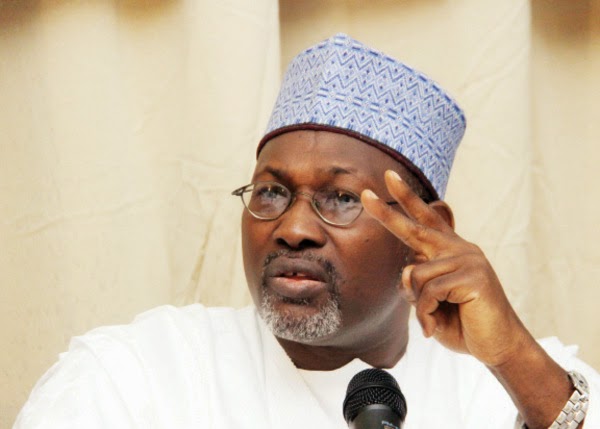POLITICS

“THIS IS NOT DEMOCRACY” — JEGA RAISES ALARM OVER NIGERIA’S GOVERNANCE CRISIS
Former Chairman of the Independent National Electoral Commission (INEC), Professor Attahiru Jega, has raised the alarm that Nigeria is gradually shifting from a true democracy to an “elected autocracy,” despite enjoying nearly three decades of uninterrupted civilian rule.
Delivering a keynote address titled “Required Reforms for Stronger Democratic Institutions in Nigeria” at The Platform Nigeria: June 12, 2025 Edition organized by The Covenant Nation Global in Lagos, the respected political scientist from Bayero University, Kano, said Nigeria has mastered the formalities of democracy — elections, party campaigns, and handovers — but lacks its core elements.
“We have perfected the rituals of democracy, but not the substance: functioning institutions, selfless leadership, and citizen trust,” he lamented. “Worse still, those elected to protect democracy have become its greatest threat.”
Jega emphasized that Nigeria must undergo deep institutional reforms to promote accountability, uphold the rule of law, and ensure that governance genuinely serves the people.
One of the major flaws he identified is the immunity clause in the Constitution, which was intended to shield the President and Governors from frivolous lawsuits but has now become a license for impunity.
“This provision has been exploited to loot public funds, manipulate state institutions, and violate rights without consequence,” he said. “For as long as they’re in office, these officials act as if they are above the law. This is not democracy — it’s elected autocracy. The immunity clause must be scrapped.”
However, Jega warned that removing immunity is only a first step. He stressed the urgent need for judicial reforms, as the judiciary has become weakened by political influence, poor funding, and questionable appointments.
“An independent judiciary is the backbone of any democracy. Without it, governance collapses into chaos. Our courts are increasingly delayed, politicized, and sometimes complicit in undermining justice,” he stated.
He advocated for all election petitions to be concluded before winners are sworn in, and for judges to be appointed based on merit rather than political allegiance. The recurring issue of conflicting court orders must also be addressed to restore public confidence in the judicial system.
Jega also turned the spotlight on the press, describing it as another vital pillar of democracy that is under siege. He decried the growing harassment and censorship of journalists, alongside the erosion of editorial independence due to political interference and financial patronage.
“A press that cannot report freely is a press that cannot hold power to account. The Freedom of Information Act must be enforced, and violators must face penalties. At the same time, journalists must adhere to professional ethics to combat disinformation and hate speech,” he added.
Speaking on electoral integrity, Jega acknowledged INEC’s efforts in adopting technology but pointed out lingering structural problems. He argued that INEC should be unbundled, with separate bodies handling the prosecution of electoral offenders and regulation of political parties, allowing the commission to focus solely on conducting elections.
“Credible elections are the lifeblood of democracy. Without transparency, fairness, and public trust in the process, democracy becomes a costly, empty ritual,” he said.
He criticized the overwhelming power held by the executive branch at all levels, describing it as bloated, unaccountable, and riddled with political appointees. Security votes are spent without transparency, legislative oversight is often ignored, and appointments are made based on loyalty rather than competence.
“We must slash the number of political appointments, enforce transparency in public spending — especially on security — and demand ethical standards from our leaders,” Jega stated.
Importantly, he emphasized that sustainable democracy depends not only on institutions but on citizens’ active engagement. Years of corruption and exclusion have fueled apathy, but he stressed that democratic governance cannot be outsourced.
“Citizens must rise, participate, demand accountability, reject vote-buying, and challenge the politics of ethnicity and patronage. Democracy belongs to the people — but only if the people claim it,” he declared.
Jega also called for inclusive participation through diaspora voting, early voting options for essential workers, and legislative quotas for women, youth, and persons with disabilities. He noted that a democracy that does not reflect its people’s diversity is inherently flawed.
“Nigeria doesn’t just need periodic elections. We need a full democratic reset. Civil rule is not the same as democratic governance. That illusion must end,” he warned.
Concluding his remarks, Professor Jega urged urgent, courageous reforms — from abolishing immunity and fixing the judiciary to empowering the press and unbundling INEC.
“This is a generational mission, but we must not delay. Nigeria is not doomed — but we’re running out of time. Let the reforms begin. Let the people rise. Let democracy, finally, be real.”
"This represents a significant development in our ongoing coverage of current events."— Editorial Board









